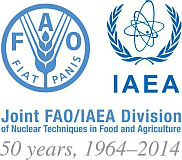The symposium will have the following objectives:
1. Bring together experts to present contemporary and novel applications, identify gaps and discuss future perspectives and opportunities;
2. Provide a forum for interdisciplinary networking between professionals from different backgrounds, including industry, national institutes, academia, and public and private bodies;
3. Facilitate a broad understanding of the topics involved; and
4. Promote peaceful applications of nuclear technologies.
The target audience includes:
1. Food scientists and laboratory analysts
2. Policy makers
3. Regulators
4. Food producers and the private sector
5. United Nations agencies such as: WHO, FAO, and UNIDO
6. Research institutes and universities
The sessions will cover the following topics:
-
Analytical technologies for food authentication, traceability and contaminant control
AT• Isotopic and elemental ‘fingerprinting’ for food traceability and authenticity
• Analytical methods to detect adulterants and contaminants in food
• Tests to detect and authenticate irradiated food
-
Food irradiation — new technological approaches and applications for reducing food waste and food losses, as well as improving food security and safety
FI• Shelf life extension
• Microbiological decontamination
• Insect disinfestation (quarantine treatment)
-
Climate change and other environmental and related factors that impact food safety and quality
CC• Integrated analytical techniques for food safety and environmental sustainability
• Applications of food irradiation and analytical techniques to moderate damages associated with climate change
• The use of radiotracers and stable isotopes for transfer studies and contaminant traceability
-
Chemometrics, statistical methods and predictive models in food analysis
CM -
Emerging threats to the integrity of the food supply chain and potential control techniques
ET -
International guidelines/standards/regulations for consumer protection and international trade
IG

